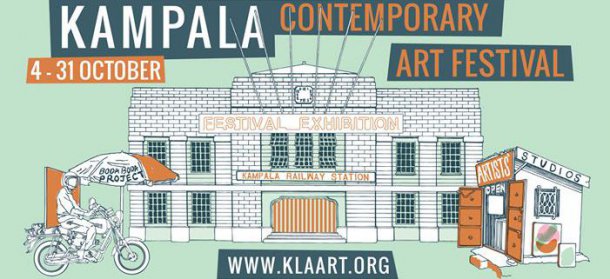Kampala Contemporary Art Festival
Publicado14 Out 2014

Em Agosto, a Bienal de Kampala mostrou 45 artistas de 13 países africanos sob o tema "Progressive Africa" e, em Outubro, a cidade é palco do Kampala Contemporary Art Festival (KLA 14), com o mote "Unmapped", desafio lançado a artistas do Uganda e países vizinhos. Katrin Peters-Klaphake, uma das fundadores do KLA, e curadora da Makerere Art Gallery/Institute of Heritage Conservation and Restoration, da Makerere University escreve sobre o impacto destas iniciativas no contexto do Uganda.
Unlike most countries on the continent, Uganda has a relatively long history of formal art education and a growing number of art schools constituting a backdrop that new developments have to deal with. The School of Fine Arts at Makerere University traces its history back to the late 1930s when the British Slade-trained artist and teacher Margaret Trowell started teaching the first art students. Her educational philosophy to encourage an “authentic” African art has shaped generations of artists and educators. Later on, the educational turn towards the dominant Euro-American model of art education that her successor Cecil Todd implemented in the 1960s was just as momentous. Breaking free from restrictions that come with institutionalized learning environments in the post-colony in a direction allowing for alternative theory and practice formation is an important process. Interrogating the paradigms of artistic production and curation in East Africa today and questioning how knowledge about art is generated and disseminated, how the past informs the present, are some of the issues up for discussion at and around the festival. Until quite recently, exhibition making in Uganda was commonly limited to the organization of mainly solo shows with little or no critical curatorial framework. The layout of KLA ART as a format manifests itself as a framework that allows for different enactments. KLA ART 014’s vision has grown from the aim to open up spaces for new artistic projects to also unlock new curatorial perspectives. In recent years, art from Uganda had lost its visibility outside the borders; contemporary cultural activities including KLA ART have given the country a bolder re-entry on the artistic map.
O artigo completo, na Contemporary and
